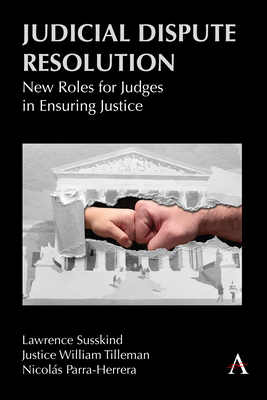We are concerned about the role of the courts, particularly judges, in guaranteeing justice. We are impressed with the success of the courts in Canada that are using what is called judicial dispute resolution (JDR). We also describe similar efforts in other parts of the world wherethe court helps parties resolve their differences in a timely way, not by deciding who is right and wrong, but by assisting the parties in resolving their differences and mendingtheir relationships.The judges who do this mediate, rather than adjudicate. All judges, worldwide, have responsibility for and authority over the procedures that are used in their courtrooms. This book describes the ways in which a judge can facilitate problem-solving between litigants. JDR is similar to mediation, alternative dispute resolution (ADR), as it is sometimes called, but it is provided by a judge, not a private mediator (as in the United States). This increases the chances of success. A judge, unlike a private mediator, can give the parties a definitive forecast of the likely legal outcome they can expect if their case proceeds to trial. JDR also affords the parties substantial assistance in working out the terms of a mutually agreeable outcome, in the setting of the courthouse (not a lawyer's office), and in the form of a court order signed by the judge. From what we have seen, such outcomes are very likely to be viewed as fair by all parties. There is no downside, because if JDR fails, the matter proceeds to trial with a different judge who knows nothing of the parties' earlier efforts to settle. Additionally, what has happened in Canada is that the mediating parties, who like the help the judge is providing, can ask to turn their voluntary JDR process into a binding procedure, where if they cannot reach a complete agreement, they can ask their JDR judge to impose a final decision- which they can help to craft. This book describes how JDR has worked for several decades in multiple provinces in Canada. We review the role of the Chief Justice in setting up JDRs for complicated (multi-party or other complex) cases. Very little has been written about JDR because all the records have remained confidential. We can tell this story now because we have been given exclusive access to the parties (including the JDR judges) and the records in nine carefully selected cases. Our book looks at the role judges play in ensuring justice - how that role has changed and could continue to evolve in North America










